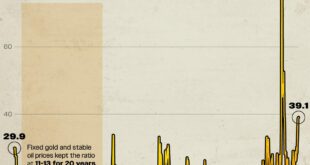HONG KONG/SHANGHAI (Reuters) – China’s yuan (CNHUSD) and stock markets fell sharply on Wednesday as the prospect of another Donald Trump presidency and Republican control of US Congress risked heightened tensions over trade and technology.
By the time Chinese markets closed, Trump had claimed victory over Democrat Kamala Harris in the tight U.S. presidential race.
US stock futures jumped and the dollar (DX-Y.NYB) rose across the board after Republicans won a clear U.S. Senate majority although it won’t be clear for some time which party will win control of the House of Representatives.
China’s blue-chip CSI 300 (000300.SS) Index fell 0.5%, while Hong Kong’s benchmark Hang Seng (^HSI), which is more indicative of foreign investor sentiment, fell 2.3%. The Hang Seng China Enterprises (^HSCE) Index fell 2.6%.
Hong Kong-listed China tech stocks declined broadly, with e-commerce giant JD.com (JD, 9618.HK) and Alibaba (BABA, 9988.HK) down 4% each.
The U.S. presidential election will have a meaningful impact on China’s economy and capital markets. As part of his pitch to boost American manufacturing, Trump had promised voters he will impose tariffs of 60% or more on goods from China.
“Right now, the markets are focusing narrowly on the prospect of tariffs because it is the easiest lever to pull directly under a presidential executive order, but we’ve seen between 2016-20 other levers that can be pulled to contain China,” said Rong Ren Goh, a portfolio manager in the fixed income team at Eastspring Investments.
“It can include financial sanctions on Chinese entities, further tightening the screws on Chinese access to technology critical to AI development…the list goes on.”
Thus foreign investors are likely to position themselves defensively on any China-related assets, and probably hedge their currency risk, he said.
China’s equity market is in the midst of recovering from a years-long slump as authorities promise to address weak consumption and a downturn in the real estate sector. The CSI 300 index is up more than 20% since Sept. 23, when Beijing started rolling out rate cuts and stimulus.
But a Trump win could stymie that rally, with technology, defence and export sectors in the crosshairs of his policies.
Since both Democrats and Republicans are relatively united in antagonism to China, markets may not react dramatically until concrete policy changes are announced.
“Although both candidates are probably hawkish toward China, Trump is still less predictable in terms of policy, so the prospect of a Trump win could still drag sentiment a bit,” said Kenny Ng, strategist at China Everbright Securities International in Hong Kong.
Source link
 meganwoolsey Home
meganwoolsey Home

